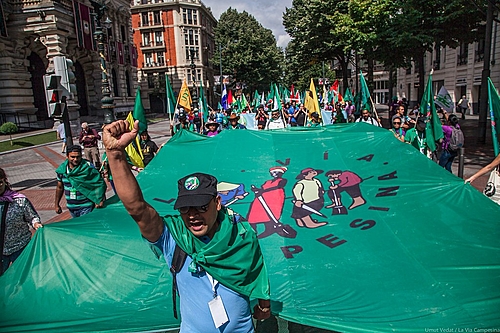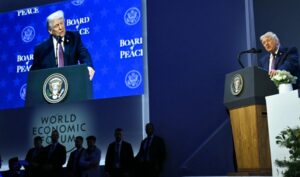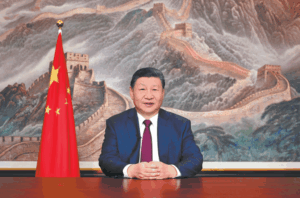
More than 180 peasant organizations from 82 different countries decided to meet in Bogotá, capital of Colombia, to debate and propose alternative development and food production models to agribusiness.
The 8th Via Campesina International Conference, which begins this Friday (1), promises to bring to the South American country more than 500 representatives of rural movements from all regions of the world to discuss the construction of food sovereignty in the face of current crises global.
This will be the first international conference of the movements after the covid-19 pandemic which, according to UN studies, has generated increases in the number of people affected by hunger and worsened levels of food insecurity around the world.
According to the State of Food Security and Nutrition in the World report, prepared by five United Nations agencies and published in July this year, more than 122 million people began to face hunger after the new coronavirus pandemic. Currently, the UN states that there are 735 million people suffering from hunger and 2.4 billion in a situation of food insecurity.
::Socio-environmental disasters and the emergence of the debate on food sovereignty::
In Latin America, the number of people facing hunger is still higher than the rates recorded in 2019, before the start of the pandemic. According to data from the Pan American Health Organization (PAHO), 43.2 million Latin Americans are hungry.
During the eight days of debates and activities, the organizations that will participate in the La Via Campesina International Conference must discuss topics that affect the different rural areas of each region of the planet to build practices in favor of food sovereignty as an alternative proposal for peasant agriculture. against agribusiness.
Founded in 1993, the Via Campesina movement today encompasses the main organizations fighting in the field on all continents and defends the construction of international consensus and practices for ecological food production that can combat hunger and reduce the risk of food insecurity.
::Internationalization of the fight against hunger: what to expect from a partnership between Brazil and China?::
Parallel to the 8th International Conference, the movements present must also hold the 5th Youth Assembly and the 6th Women’s Assembly, whose objective is to “debate peasant and popular feminism to fight against the crises and violence” of rural workers.
“The assembly is an opportunity to strengthen our common vision and a path to seek new solutions to the concepts we already know, as well as the proposals and demands that emerge in the territories, which are soon taken on by the movement”, say the organizers.
War in Gaza
The hostilities in the Gaza Strip that began on October 7th generated actions by movements organized in La Via Campesina and should influence the topics of discussion at the conference.
In a statement, the organization demanded “an end to all aggression and acts of violence against civilians” as well as “the prosecution of all those responsible for war crimes before the International Court of Justice.”
Furthermore, Via Campesina, in partnership with the Union of Agricultural Work Committees (UAWC), a peasant movement in Palestine, started a donation campaign aimed at raising food, water and basic necessities for those affected by the attacks. in Gaza.
::MST sends first load with 2 tons of food to Gaza; The goal is to reach 100 tons::
“The Israeli occupation uses hunger as a weapon against the civilian population to force them to abandon Gaza and immigrate to Egypt. This brutal tactic forced the departure of more than 1.5 million Palestinians from the north and south of the Gaza Strip” , it says.
The organization also declared support for the movement called BDS, an acronym for Boycott, Divestment and Sanctions, which aims to boycott direct and indirect financial support to the State of Israel. “Many products are mislabeled as ‘made in Israel’ when, in fact, they come from stolen Palestinian land,” says Via Campesina.
For the 8th International Conference, the launch of a special committee of the organization for the Arab Region and North Africa is planned, which will include movements from Palestine, Morocco and Tunisia.
Editing: Leandro Melito
Source: www.brasildefato.com.br

